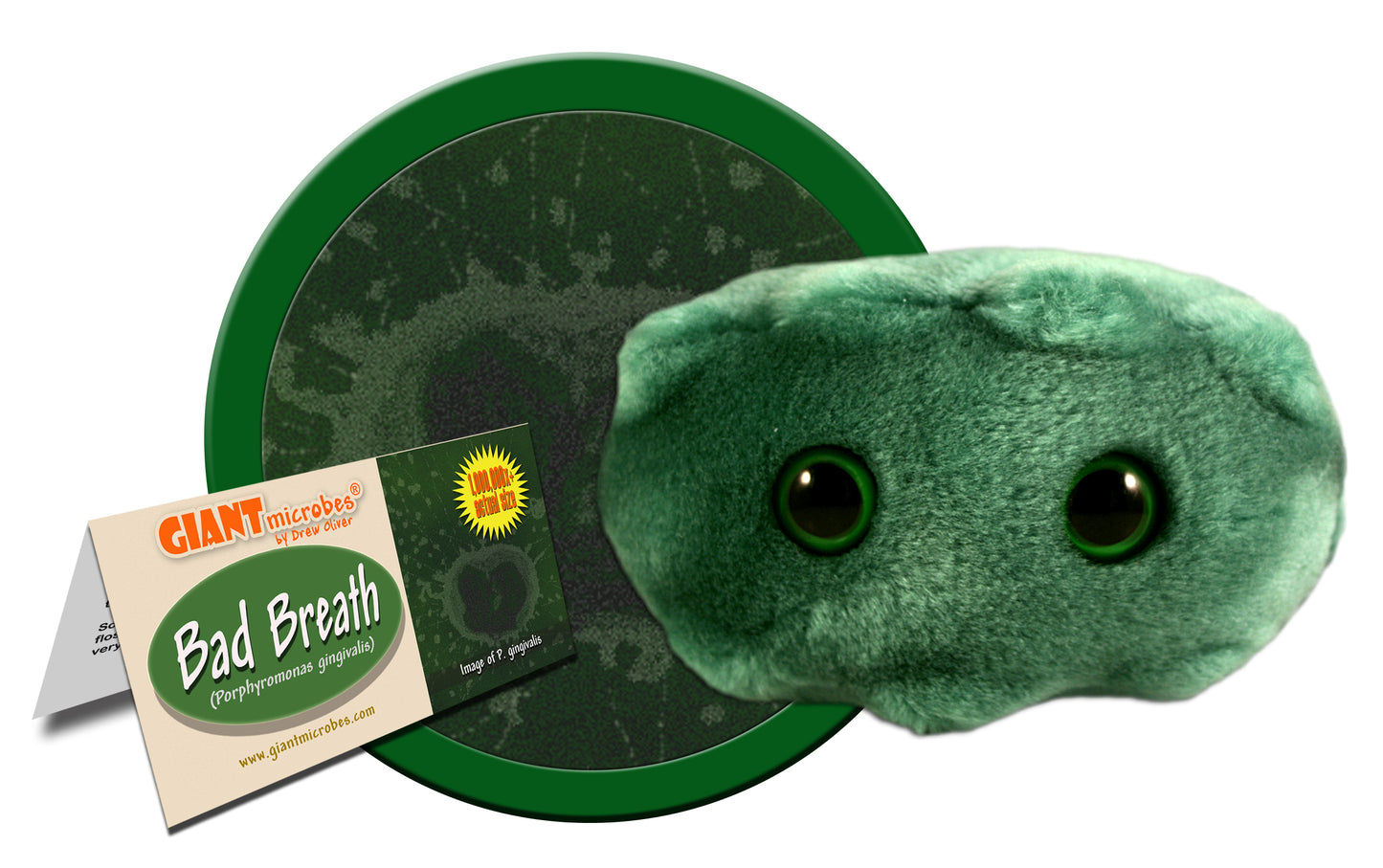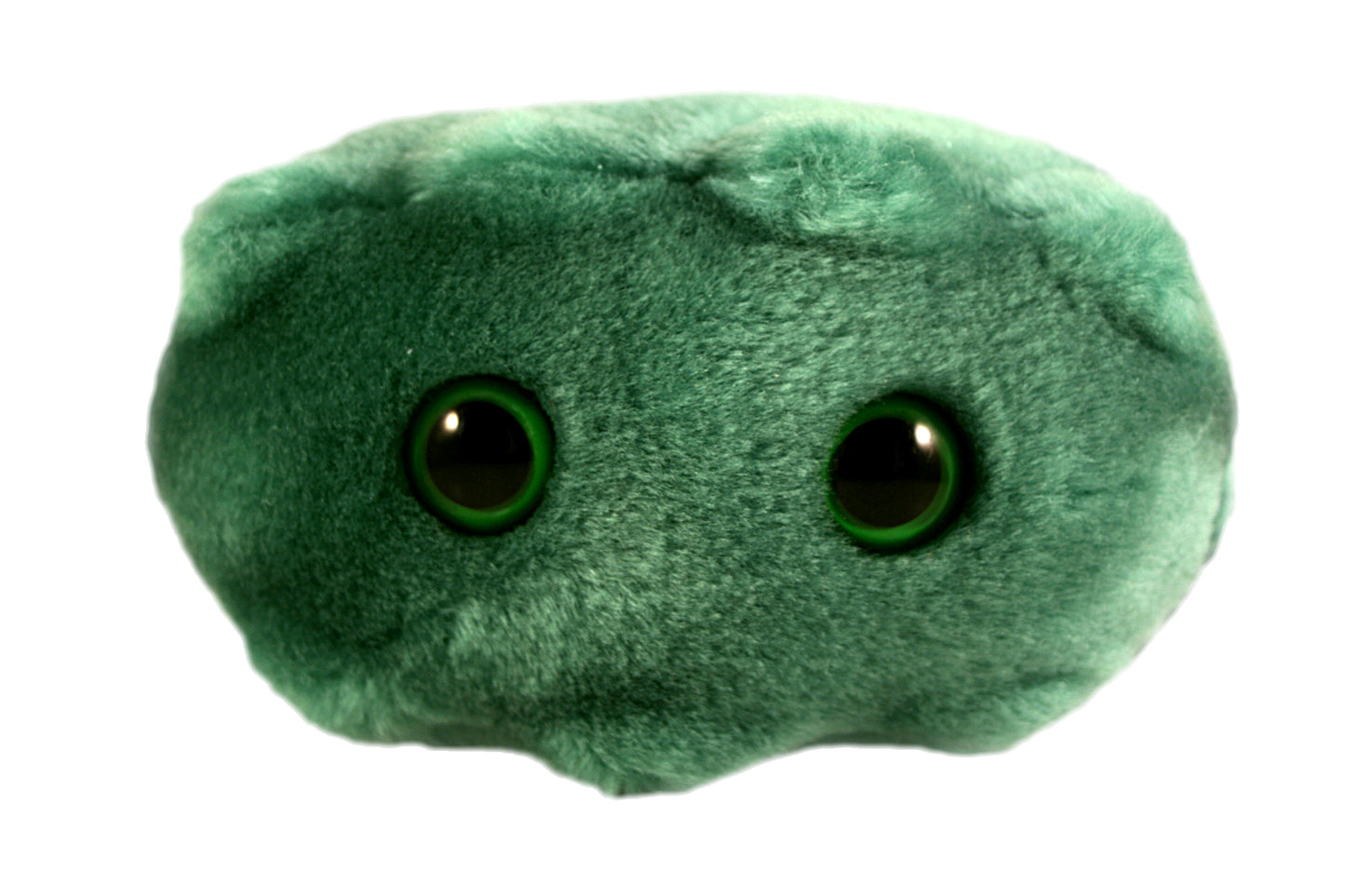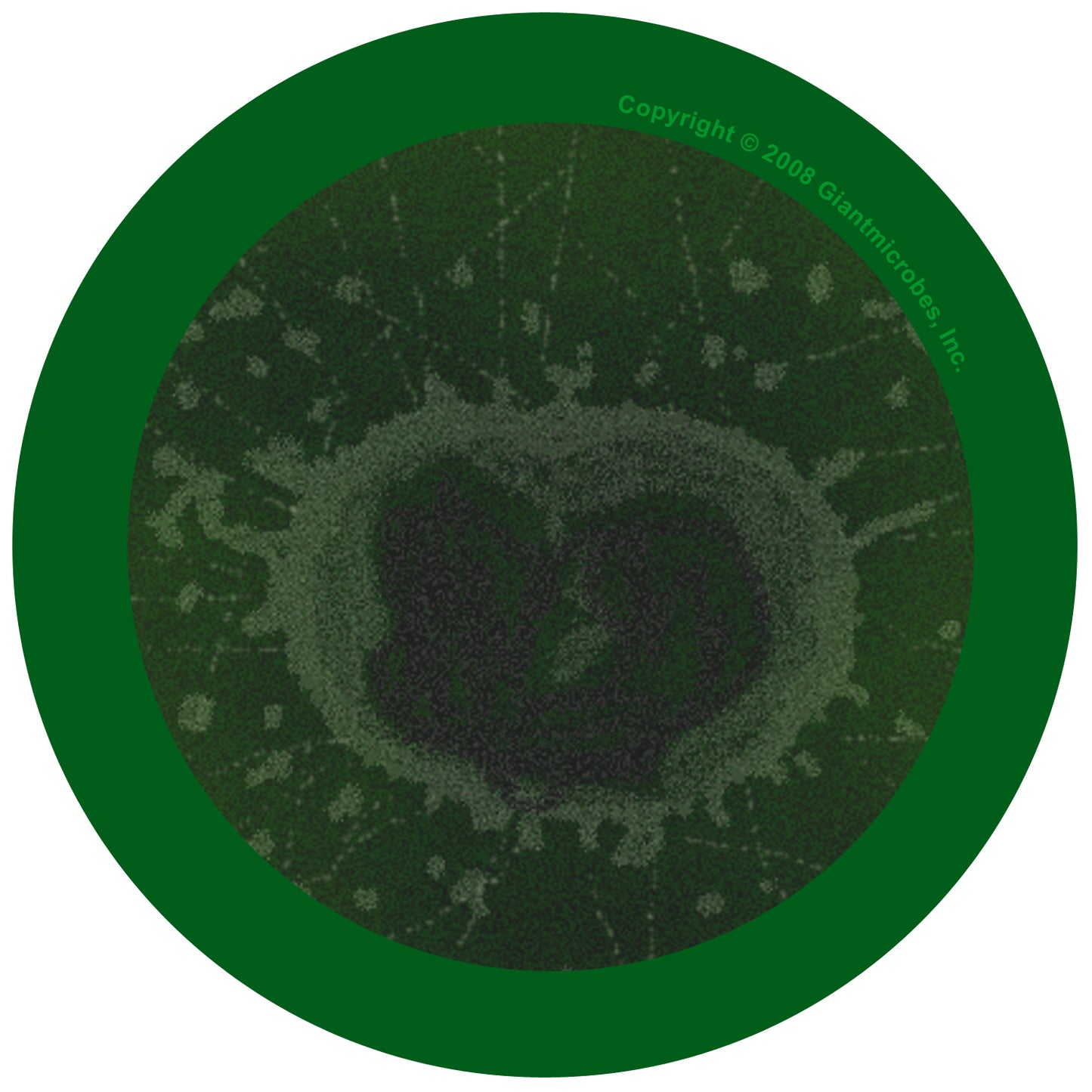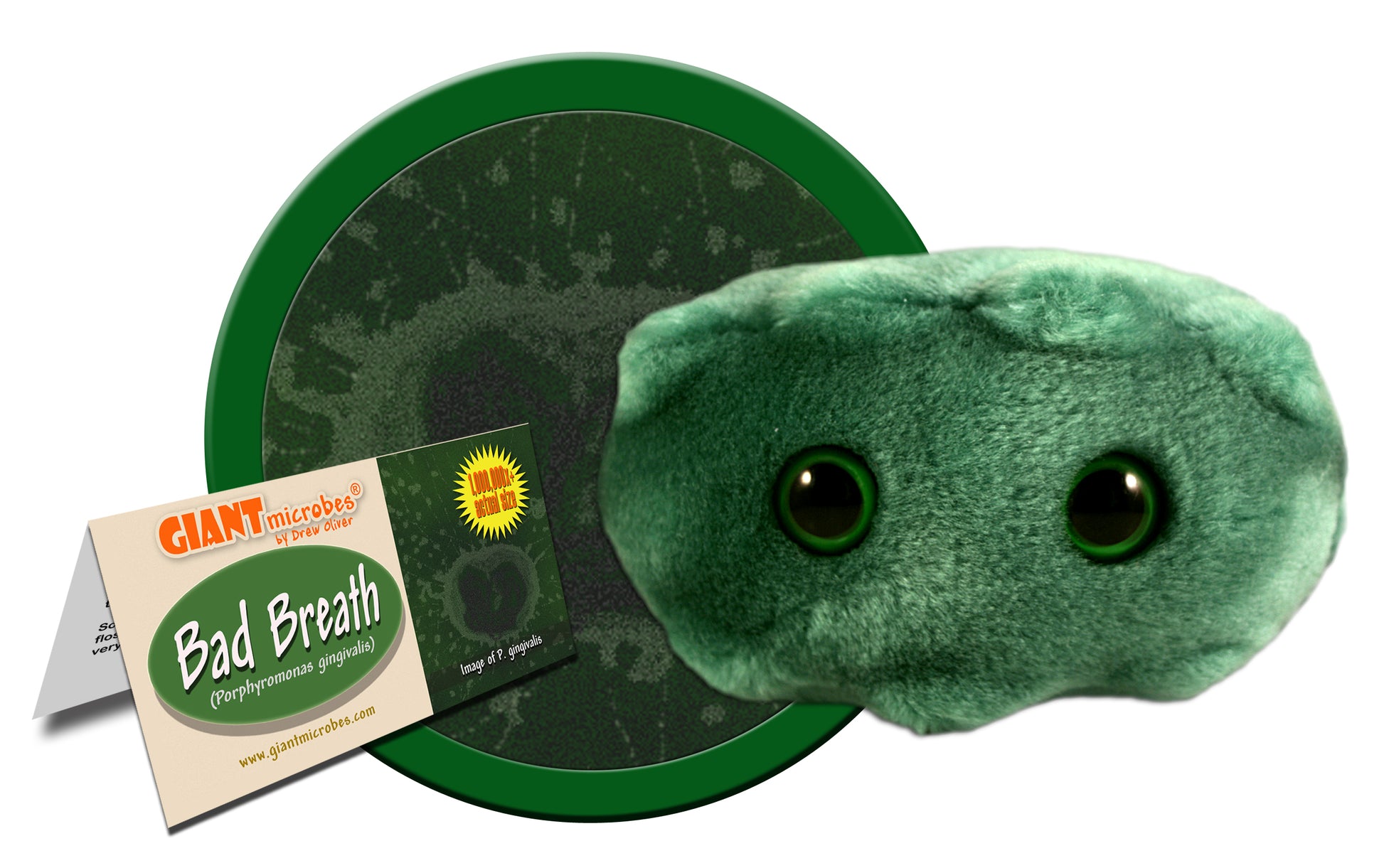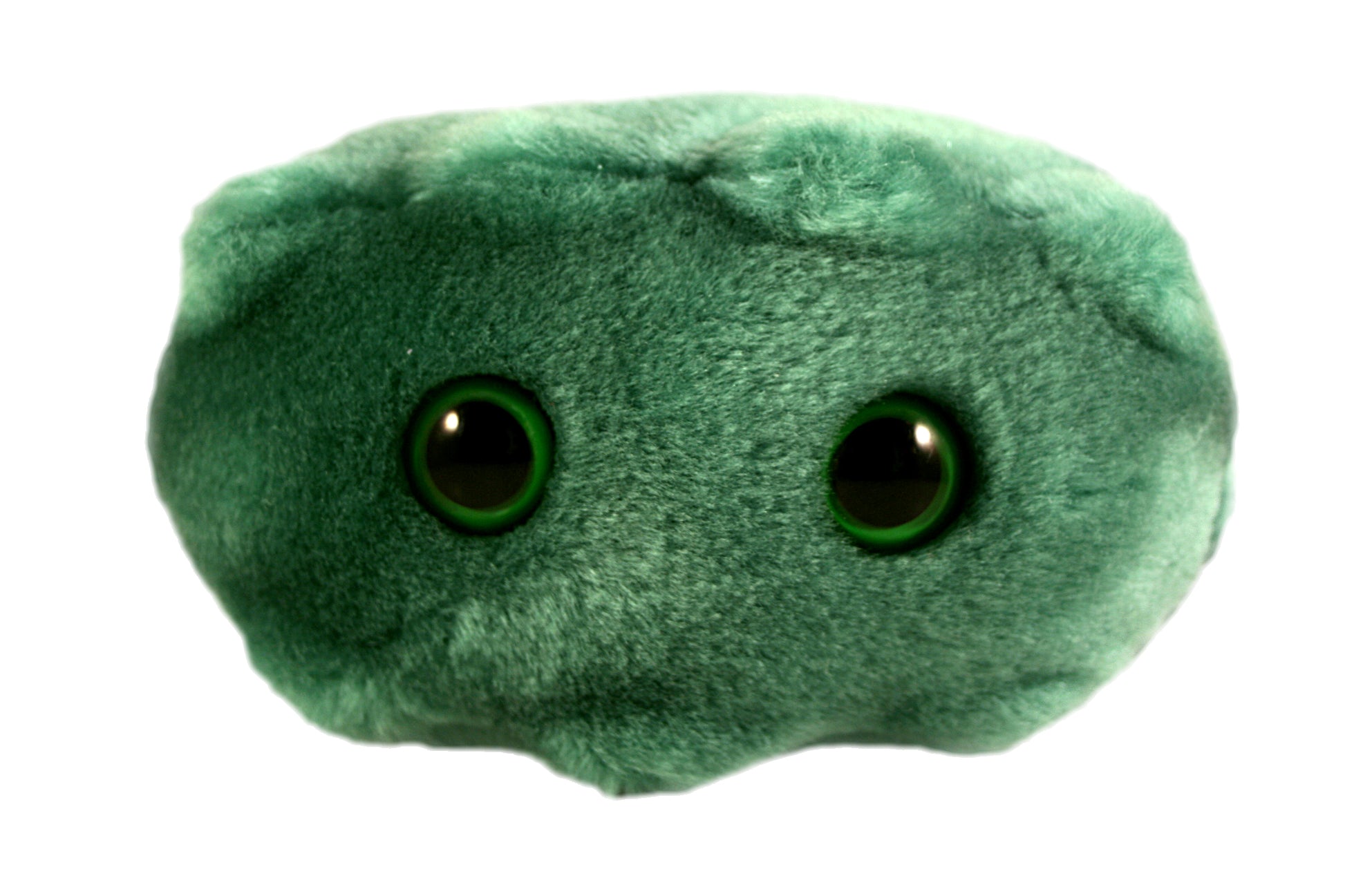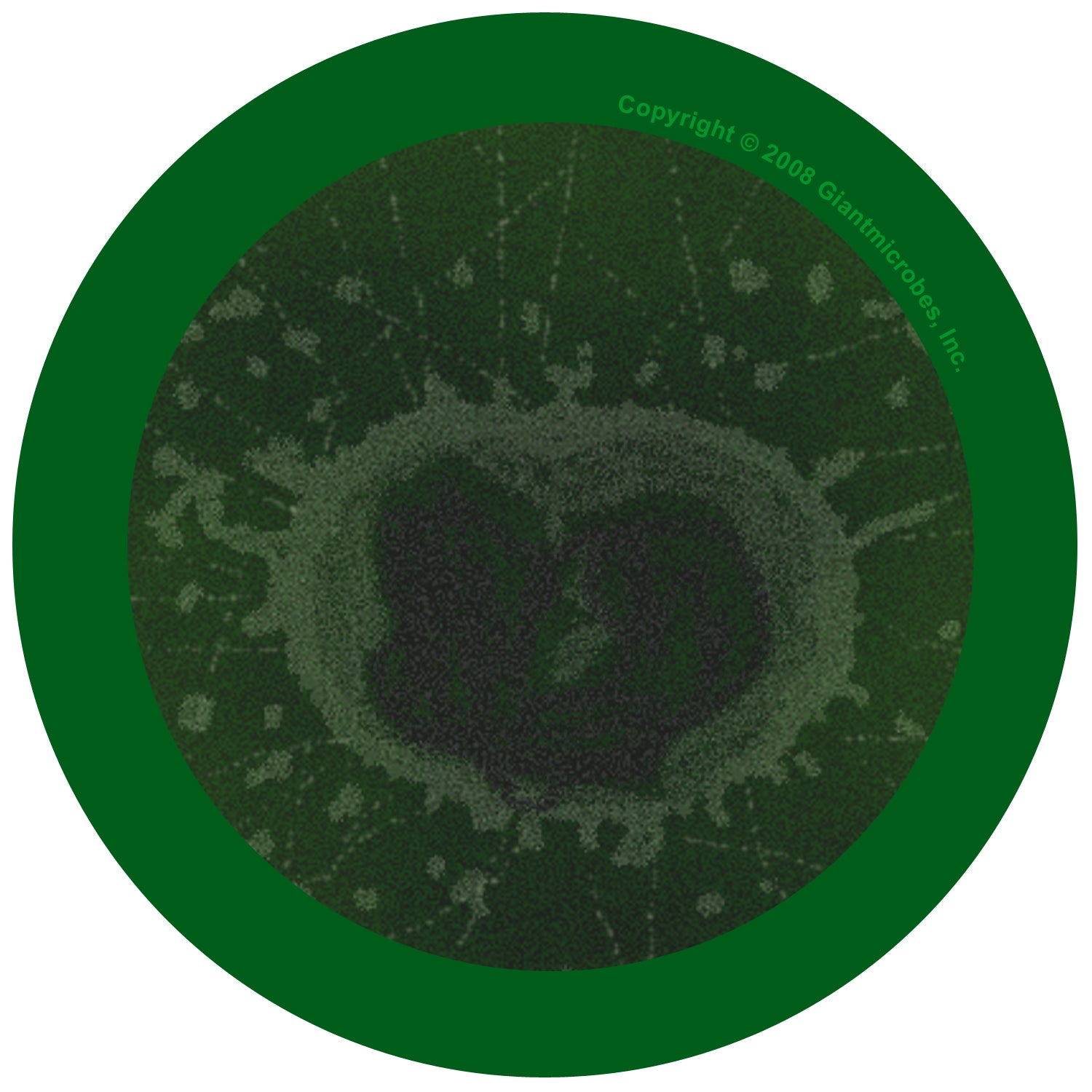Bad Breath (Porphyromonas Gingivalis)
Bad Breath (Porphyromonas Gingivalis)
Couldn't load pickup availability
- A gentle hint for anyone with halitosis!
- Fun reminder to brush and floss
- Great gift for dentists and hygienists
All About Bad Breath (Porphyromonas Gingivalis)
FACTS: Many people believe that bad breath, or halitosis, is caused by gas rising up from the stomach – particularly after eating onions or spicy foods. In fact, most cases are caused by microbes such as Porphyromonas gingivalis!
Between three and four hundred types of microbes typically call the human mouth home. Most are harmless. But a few produce “volatile sulfur compounds.” These compounds, such as hydrogen sulfide – which smells like rotting eggs – give bad breath its characteristic odor. (Other oral bacterial by-products include cadaverine and putrescine, which are typical of rotting corpses and rotting meat!)
VSC-producing bacteria are generally present in inoffensive quantities. However, as oxygen levels in areas of the mouth are reduced – behind layers of plaque or food, for instance – these anaerobic bacteria thrive. Furthermore, as VSC-levels increase, the pH of the mouth is reduced, which creates the sour, metallic taste experienced by halitosis sufferers!
NAME Porphyromonas gingivalis
ACTUAL SIZE 0.5–5.0 micrometers in length, 600 of these microbes fit across a pinhead!
WHERE IT LIVES P. gingivalis human beings or other animals such as dogs and cats.
SYSTEM Targets the mouth, mainly the gums!
CURE Halitosis cannot be directly treated without determining the exact source of your halitosis through professional care.
Use everyday treatments like chewing gum and mints, toothpastes, mouth rinses, and sprays to counteract temporarily your bad breath.
DEADLINESS/SEVERITY Although unlikely to lead to death, halitosis can make your friends and family seriously uncomfortable.
INFECTIOUSNESS Halitosis (thankfully) is not spread person to person, but without regular hygiene, bacteria and other bad breath causing microbes can easily cause halitosis.
HISTORY The word halitosis is derived from the Latin word halitus, meaning “breath”, and the Greek suffix -osis meaning “a condition of”.
Papyrus surviving from around 1700 B.C. mentions a medication used in Old Egypt to alleviate bad breath made up of incense, cinnamon, myrrh, and honey.
Hippocrates 460-377 B.C. had an exotic recipe based on marble powder for women suffering from bad breath.
FASCINATING FACTS Consumers in the United States spend $1 billion annually on deodorant-type mouth (oral) rinses, mints, and related over-the counter products.
So what can you do about Porphyromonas gingivalis? Brush and floss, of course. Oh, and avoid onions and spicy foods: they’re very high in sulfur content.
